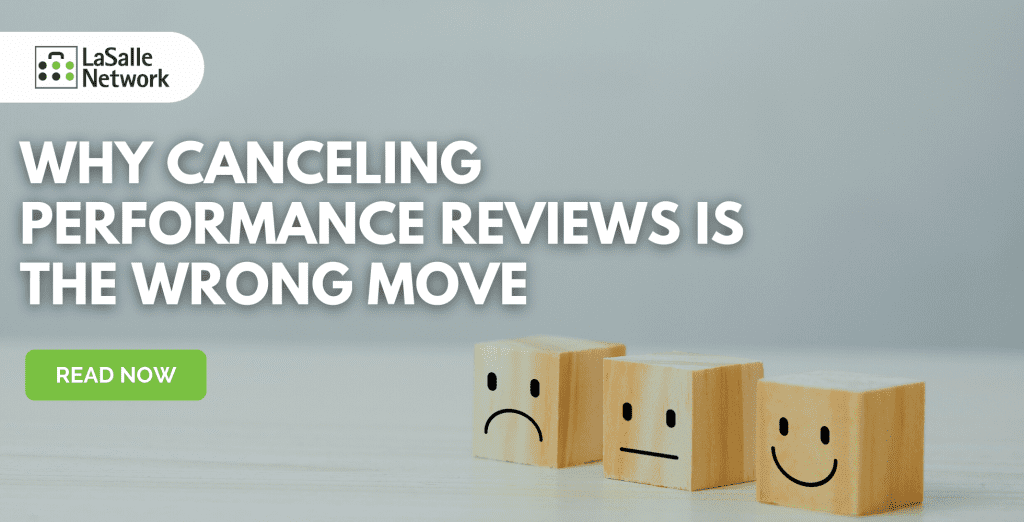We collected survey responses from more than 1,700 employed professionals across the U.S. in October 2022 and again in January 2023 to gauge job satisfaction levels and understand what retains talent at their current companies, compiling our findings into a report with concrete retention and employee engagement strategies. What we found was surprising – job satisfaction levels were higher than anticipated, and yet, 85% of talent surveyed reported they would still consider leaving their job in the next six months. One key aspect of helping reengage and retain employees is making sure they understand their role and how their work is being perceived, and the many employers choosing to soften or cancel their performance reviews could be putting them at a disadvantage.
Many employees had to take on added demands and shift priorities to meet the needs of the business in new ways recently, and while some stepped up to produce great results, others’ work product wasn’t up-to-par. Leadership providing honest feedback to their under-performers now is the only way to help them redirect their energy and work style to improve their performance for the challenges yet to come.
Empathetic leadership, an approach taken by many leaders throughout the pandemic in order to help support employee mental health, does not mean leaders should cancel reviews or dismiss conversations about employee improvements. True empathy requires honesty and when employees are unaware of their performance, it can increase stress unnecessarily. Leaders could even be putting their employees’ jobs at risk by not providing clear feedback.
In a recent interview with Harvard Business Review, LaSalle Network’s Chief Human Resources Officer, Sirmara Campbell, states “that while employee performance reviews have no doubt changed due to the pandemic, the goal remains the same. The point of performance reviews is to give employees the opportunity to develop, which in turn helps the company grow. Even at a time of heightened stress, we still need to make sure we are providing useful feedback to help the employee and the company move forward.”
Employees need consistency and transparency. Discussing where employees are excelling, or where they are falling short, should be a regular conversation. In fact, any feedback given during a performance review should never come as a surprise. The performance review should never be the first time they hear the feedback – good or bad, and especially if it’s criticism. You’re hindering the employee’s development when you do that. Society has developed a fear of feedback, with a negative connotation attached to “feedback.” Rather, present it to an employee as an opportunity to be a stronger professional in the year ahead.
If you’re looking to build a strong team in the year ahead, click here for information on how we can help.




